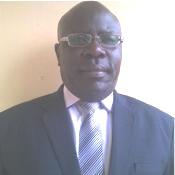Uganda plans to step up tea research with $1m
November 9—The government plans to spend UGX4 billion (just over $1 million) for stepping up research in tea production and reduce dependency on Kenyan laboratories. Tea exports currently bring in almost $100 million annually.
Dr. Robert Kajobe, the Director of the Rwebitaba Zonal Agricultural Research and Development Institute in Kabarole District, western Uganda told 256BN, “Yes the Ministry of Agriculture, Animal Industries and Fisheries approached the Ministry of Finance to source for special funds to support research in the tea sector.”
He said, “The good news is that money has been sourced and as an Institute we are receiving about UGX4 billion to finance infrastructure development at the Institute and also cater for scientific research projects which the Institute will be conducting.”
Uganda’s tea growing areas are found in the highlands in the west of the country where the Institute is located. Dr. Kajobe said the money will be spent on the construction of modern laboratories at the Institute and increase the area coverage for tea research and also recruit research scientists.
He said tea research in Uganda has been lagging behind compared to other crops in the agriculture sector yet quality tea is in high demand on the international market. He said the UGX4 billion will solve some of the scientific challenges which the tea sector has been experiencing.
“Like in other crop sectors where scientists have developed new varieties raging from high yielding ones, resistant to drought and diseases, the tea sector also needs such varieties. As scientists, we shall be developing high yielding tea clones and this will boost the sector,” he said.
Dr. Kajobe said to date, scientists at the Institute had developed 273 tea clones of which farmers are not aware of and 10 of these clones are of high yields and disease-resistant.
“As tea farmer, we have been basing on the researches being conducted at the Tea Research Institute, Kericho, Kenya but this has many challenges to farmers, because the soils where we are growing our tea is different from that of Kenya. But if our own scientists do the research here in Uganda then we shall have access to the quality information” Moses Ainobyona, a tea farmer from Kanungu told 256BN.
Uganda in the early 1970s used to host the East African Community Tea Research Institute at the Rwebitaba Zonal Agricultural Research and Development Institute. However, following the collapse of the first Community in 1977, the Institute also collapsed. This led Kenya to come up with Tea Research Institute in Kericho, which is the hub of the country’s tea growing.


 African Heads of state head to South Korea next week for Summit talks
African Heads of state head to South Korea next week for Summit talks
 Trading leads as main source of income for Ugandans
Trading leads as main source of income for Ugandans
 New leadership for bankers’ umbrella as total assets top $12 billion
New leadership for bankers’ umbrella as total assets top $12 billion
 Brussels Airlines to announce Nairobi service
Brussels Airlines to announce Nairobi service
 SITA promises enhanced travel experience after Materna acquisition
SITA promises enhanced travel experience after Materna acquisition
 Saudia’s 105 aircraft order stretches A320neo lead over rival Max
Saudia’s 105 aircraft order stretches A320neo lead over rival Max
